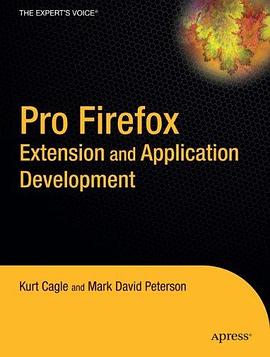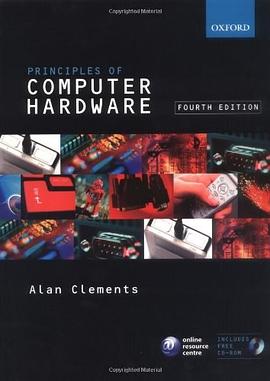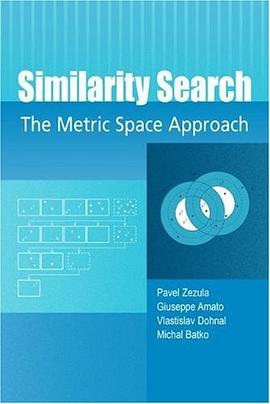

Preface Why I Felt the Need to Write This Book Open Source is such a hotly debated topic today; at the same time, .NET is seeing unbelievably rapid acceptance as the programming platform of choice. As Microsoft creates its first Open Source project and many prominent Open Source teams rush to implement standards created by Microsoft, I felt a great necessity for this book. Running code created by Microsoft development tools on a Linux machine or including an Open Source component in your proprietary product are indeed worth noting. Admittedly, this book focuses on a uniquely overlapping portion of the software industry that somewhat blurs the line between Open Source and Microsoft. Ignoring a small minority of advocates within these two camps (having worked with Microsoft employees as well as Mono guys some of who reviewed this book), I really believe there is not as much adversity as the press would indicate. Both sides have learned from each other, just like true rivals scoping out the competition at a big tradeshow or those closed-door sessions where a competitor s product is examined under a microscope and torn apart. Many Open Source projects are created using Microsoft Visual Studio .NET, and some of the Open Source projects featured in this book are meant to be plug-ins to VS.NET! Do not confuse the features of the various development tools or components with the features of the .NET platform itself. The true power of .NET is found in the standards. Who Should Read This Book? Coders those who are banging out the code, day in and day out. There are some portions of this book, mainly Chapters 1 and 2, that can be useful for managers who are wondering how Open Source licensing could affect their proprietary product. But for the most part, this book assumes a fair amount of C# and .NET knowledge. It is not a book on how to learn the .NET platform or necessarily how to set up the different .NET environments. Rather, this book shows how to use the many different projects and products together. To me, it all comes down to getting the job done and using the right tool for the job. Sometimes that tool, component, or framework might be Open Source; sometimes it is not. This book will help you understand how to evaluate the tool that best fits your needs. Have you ever felt like you just kept doing similar coding tasks over and over again on different projects? This is initially a fun, "I know exactly how to do this!" sort of a thing. But then it turns into something unexciting and mundane, like the difference between the excitement of the very first business trip you ever took and the last one you endured for the sake of your company. At first creating something as basic as a logging mechanism sounds fun and easy, but when you are done and show it to the people who will use it, you quickly find out the inadequacies: "It s too hard to use," "This doesn t support enough," or "It isn t extendable!" Many of the projects in this book address just this problem. These frameworks and components have seen a lot of runtime and have nice APIs from the many developers who use them. However, keep in mind that the greatest feature of Open Source is that the Source is Open! Not that it saves you time in not having to implement some feature, or that it is cheaper, faster, or more secure than its closed source counterparts, but that you can gain a relatively large amount of experience in a small amount of time by looking at many different code bases and designs. How This Book Is Organized This book is meant to expose the best Open Source and "Free" tools, frameworks, components, and products for .NET. Therefore, you can read it in pretty much any order. Undoubtedly, by the time this book reaches the shelves, many of these products will have improved, and of course many more good projects will materialize. My intention is to introduce you to the world of .NET Open Source, which is much vaster than most developers realize. For more in-depth information, see the user groups associated with these projects. Also, I strive to keep my Web site ([a href="http://www.Nantz.org" target="_blank">http://www.Nantz.org ) as up-to-date with these changes as possible, so you may want to check there as well. The first two chapters are background information about Open Source and its implementations of the .NET standards. If you feel you have a good handle on these topics, I would suggest starting with Part II. Look at the different tools; see which ones would be most useful and immediately helpful in your situation. Part III is essential if you are planning on deploying a .NET application on Linux or using an Open Source database engine and wonder how much .NET support these platforms have. The examples in this book are meant to display the most useful aspects of .NET Open Source coding. They, along with many of the projects, are made available in the companion CD-ROM. I would love to hear back from you ideas on the examples, improvements, comments, etc. (See my email address below.) Acknowledgments I would like to thank Addison-Wesley for giving me the opportunity to write this book. What a great team to work with. Special thanks to Stephane Nakib, Ebony Haight, Michael Mullen, and Curt Johnson, who have graciously guided me along the whole process. I would also like to thank my family for putting up with many late nights and a constant state of distraction. Thanks to Candi, Charlotte, John, and Thomas for always supporting me. Thanks to Mom and Dad for investing in my education from whence all things begin. Thank you all for letting me follow my dreams. A thank you does not seem adequate enough acknowledgment for all my reviewers and those who helped with this book. Francisco Figueiredo Jr., Nicko Cadell, Ian MacLean, Nick Varacalli, Arild Fines, Rhys Weatherley, Bernard Vander Beken, Tom Jordan, Chad Wach, Dan Maharry, Christophe Nasarre, and Ben Maurer. These reviewers are responsible for making this book readable and concise. Thank you all for your suggestions and insight. Finally, I would like to thank all the Open Source developers out there, without whom this book would never have been written. Thanks for your constant devotion and dedication to your projects. Thanks for letting us all learn from you and your ideas. Brian Nantz brian@nantz.org Menomonee Falls, WI /> class="navigation"> Copyright Pearson Education. All rights reserved.
具体描述
读后感
评分
评分
评分
评分
用户评价
相关图书
本站所有内容均为互联网搜索引擎提供的公开搜索信息,本站不存储任何数据与内容,任何内容与数据均与本站无关,如有需要请联系相关搜索引擎包括但不限于百度,google,bing,sogou 等
© 2025 book.wenda123.org All Rights Reserved. 图书目录大全 版权所有




















